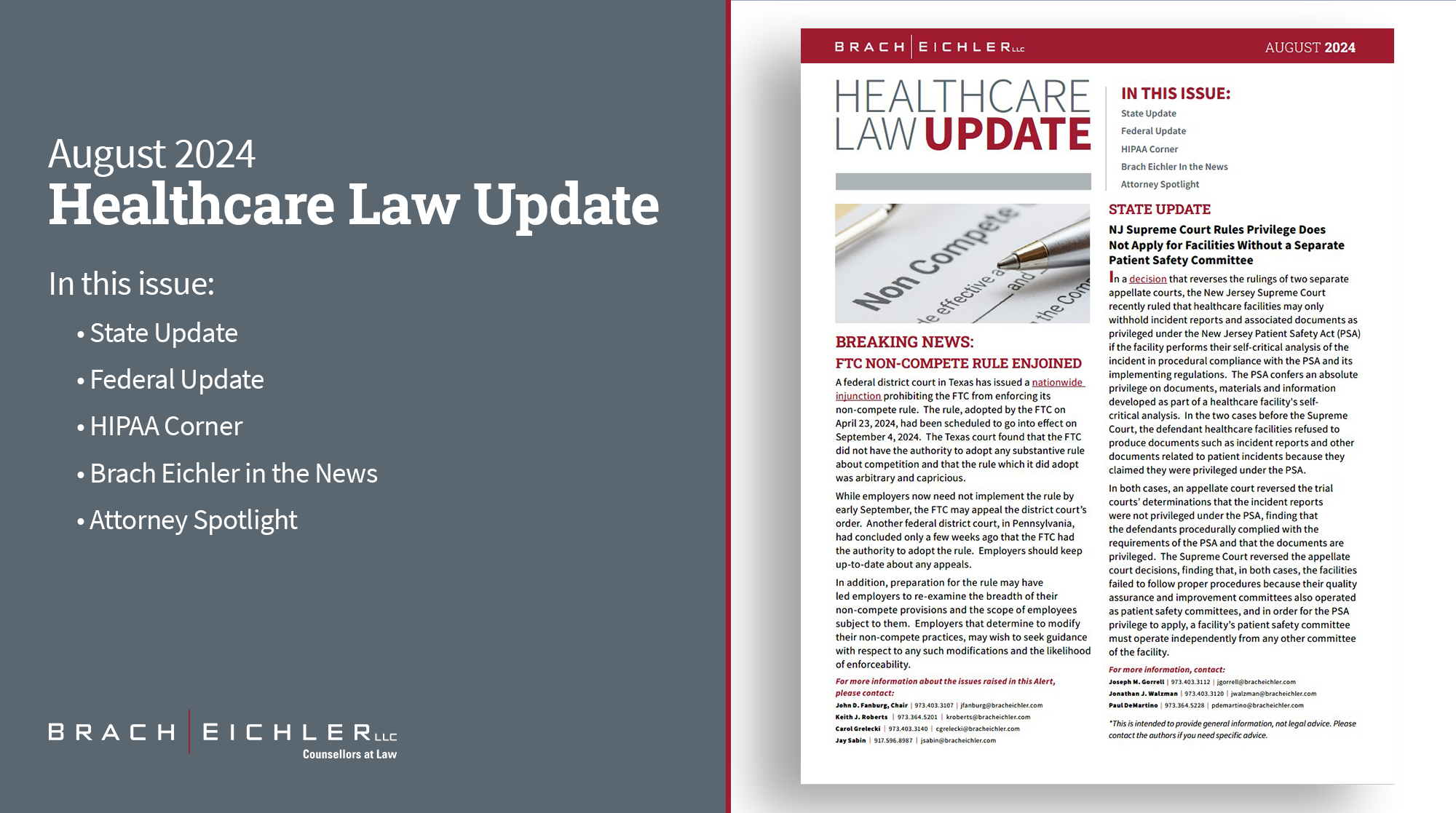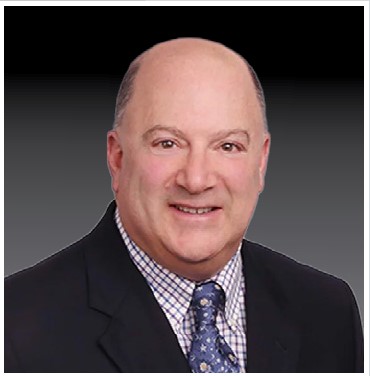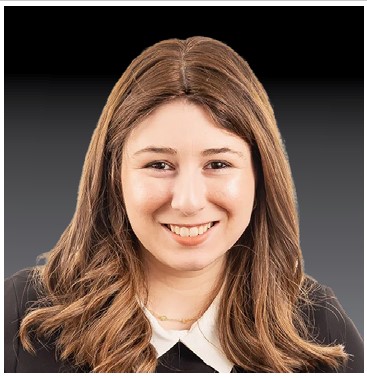
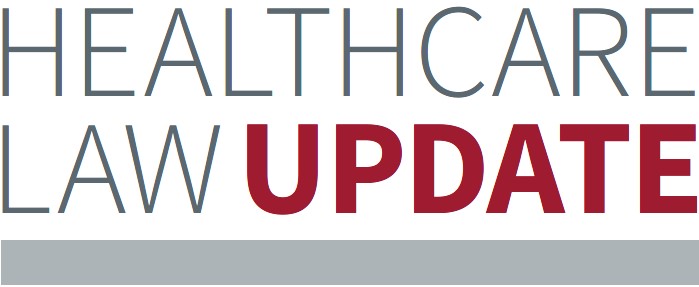

A federal district court in Texas has issued a nationwide injunction prohibiting the FTC from enforcing its non-compete rule. The rule, adopted by the FTC on April 23, 2024, had been scheduled to go into effect on September 4, 2024. The Texas court found that the FTC did not have the authority to adopt any substantive rule about competition and that the rule which it did adopt was arbitrary and capricious.
While employers now need not implement the rule by early September, the FTC may appeal the district court’s order. Another federal district court, in Pennsylvania, had concluded only a few weeks ago that the FTC had the authority to adopt the rule. Employers should keep up-to-date about any appeals.
In addition, preparation for the rule may have led employers to re-examine the breadth of their non-compete provisions and the scope of employees subject to them. Employers that determine to modify their non-compete practices, may wish to seek guidance with respect to any such modifications and the likelihood of enforceability.
For more information about the issues raised in this Alert, please contact:
John D. Fanburg, Chair | 973.403.3107 | jfanburg@bracheichler.com
Keith J. Roberts | 973.364.5201 | kroberts@bracheichler.com
Carol Grelecki | 973.403.3140 | cgrelecki@bracheichler.com
Jay Sabin | 917.596.8987 | jsabin@bracheichler.com
In a decision that reverses the rulings of two separate appellate courts, the New Jersey Supreme Court recently ruled that healthcare facilities may only withhold incident reports and associated documents as privileged under the New Jersey Patient Safety Act (PSA) if the facility performs their self-critical analysis of the incident in procedural compliance with the PSA and its implementing regulations. The PSA confers an absolute privilege on documents, materials and information developed as part of a healthcare facility’s self-critical analysis. In the two cases before the Supreme Court, the defendant healthcare facilities refused to produce documents such as incident reports and other documents related to patient incidents because they claimed they were privileged under the PSA.
In both cases, an appellate court reversed the trial courts’ determinations that the incident reports were not privileged under the PSA, finding that the defendants procedurally complied with the requirements of the PSA and that the documents are privileged. The Supreme Court reversed the appellate court decisions, finding that, in both cases, the facilities failed to follow proper procedures because their quality assurance and improvement committees also operated as patient safety committees, and in order for the PSA privilege to apply, a facility’s patient safety committee must operate independently from any other committee of the facility.
For more information, contact:
Joseph M. Gorrell | 973.403.3112 | jgorrell@bracheichler.com
Jonathan J. Walzman | 973.403.3120 | jwalzman@bracheichler.com
Paul DeMartino | 973.364.5228 | pdemartino@bracheichler.com
A recent mediation produced a settlement for a deceased patient’s estate which was twice the amount that the defendant anesthesia provider’s malpractice carrier would cover. The patient underwent anesthesia for the removal of an intrauterine device at a New Jersey outpatient surgery center. During the procedure, the patient experienced a drop in blood pressure and oxygenation and never regained consciousness. The plaintiff’s counsel alleged that the anesthesiologist failed to stop the surgery when the patient presented with signs of distress. Prior to trial, the parties sought mediation with a former New Jersey Superior Court judge. Initially, the defendant offered a settlement of $2,000,000, the coverage limit on their malpractice policy. The plaintiff refused this offer and the parties continued to mediate until a settlement of $4.2 Million was reached.
For more information, contact:
Isabelle Bibet-Kalinyak, Vice Chair | 973.403.3131 | ibibetkalinyak@bracheichler.com
Edward Hilzenrath | 973.403.3114 | ehilzenrath@bracheichler.com
Erika R. Marshall | 973.364.5236 | emarshall@bracheichler.com
On July 29, 2024, the U.S. Attorney’s Office for the District of Massachusetts announced a settlement with an ophthalmology practice with offices in New Jersey and Pennsylvania and its owner. They agreed to pay $469,232 to resolve allegations of submitting false claims to Medicare and the Federal Employee Health Benefit (FEHB) Program for medically unnecessary transcranial doppler (TCD) tests, violating the False Claims Act.
From May 13, 2019 to February 22, 2021, the practice, under a contract with a medical diagnostics company, submitted false claims for TCD tests. The medical diagnostics company provided a technician who reviewed patient files and prepared order forms for TCD tests, which physicians signed, often including diagnoses that were not indicated to justify the necessity for the tests. The practice paid the company
or an associated radiology company $30 per test interpretation, but also billed Medicare and the FEHB Program falsely, claiming that they had interpreted the tests themselves. The claims were deemed false claims because the TCD tests were medically unnecessary, the practice billed for services not performed, and the arrangement with the medical diagnostics company violated the Anti-Kickback Statute.
The settlement also resolved claims brought under the whistleblower provisions of the False Claims Act, with the whistleblower receiving approximately $84,460 as part of the settlement.
For more information, contact:
Riza I. Dagli | 973.403.3103 | rdagli@bracheichler.com
Richard Robins | 973.447.9663 | rrobins@bracheichler.com
Vanessa Coleman | 973.364.5208 | vcoleman@bracheichler.com
On June 27, 2024, the U.S. Attorney’s Office, District of New Jersey announced the filing of criminal charges against 13 New Jersey defendants arising from an alleged plan to defraud Medicare, Medicaid, TRICARE, and private health insurers as part of the Department of Justice’s 2024 National Health Care Fraud Enforcement Action. All the nationwide cases resulted in over $2.75 billion in alleged false billings, and the seizure of over $231 million in cash, luxury vehicles, gold and other assets and actions against 193 defendants in total. The criminal charges stem from the Department of Justice’s 2024 National Health Care Fraud Enforcement Action.
One of the New Jersey defendants, a medical biller, was charged with submitting false and fraudulent claims to the Amtrak health care plan for services that were not provided, resulting in plan losses of at least approximately $960,000. Other defendants, including several from New Jersey and New York, were charged with allegedly allowing medically unnecessary billing in exchange for cash kickbacks and bribes paid by co-conspirator healthcare providers, resulting in losses of approximately $11,000,000.
For more information, contact:
Keith J. Roberts | 973.364.5201 | kroberts@bracheichler.com
Shannon Carroll | 973.403.3126 | scarroll@bracheichler.com
Cynthia J. Liba | 973.403.3106 | cliba@bracheichler.com
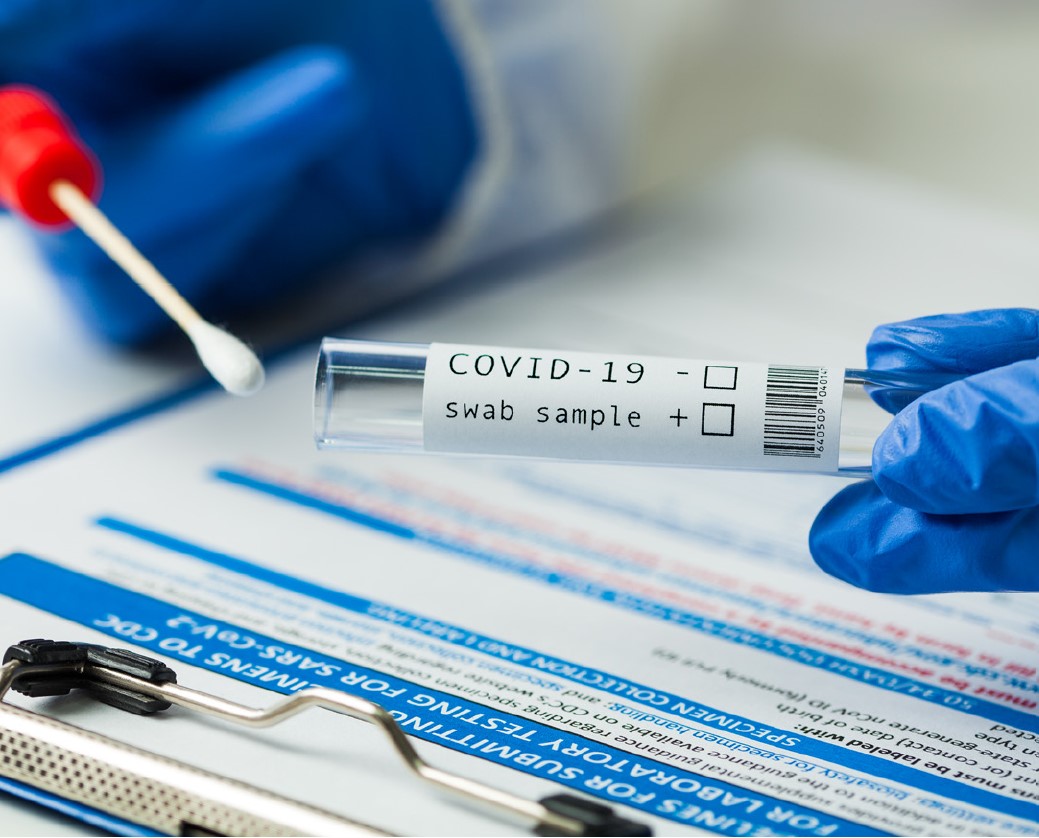
In the recent case of Estate of Campbell v. Woodcliff Health and Rehabilitation Center, a New Jersey appellate court held that no reasonable jury could find that a health facility was grossly negligent in releasing a patient when the results of a COVID-19 PCR test were still pending. In the underlying lawsuit, the plaintiff alleged that the health facility defendant was grossly negligent and reckless when the facility released a patient to their home in April 2020, despite not knowing whether or not the patient was positive for COVID-19, which allegedly resulted in the infection and death of the plaintiff’s husband due to COVID-19 complications. The plaintiff argued that the defendant facility owed a duty not only to the patient, but also “to those third parties who foreseeably and reasonably relied on competent skill and care to be exercised.” In rejecting the plaintiff’s argument, the court found that while the facility may have owed a duty to the patient’s family members who lived with her, releasing the patient home without knowing the results of the patient’s COVID PCR test failed to meet the higher standards of gross negligence or recklessness under the New Jersey COVID-19 Immunity Statute.
For more information, contact:
Riza I. Dagli | 973.403.3103 | rdagli@bracheichler.com
Jonathan J. Walzman | 973.403.3120 | jwalzman@bracheichler.com
Andrew Kuder | 973.403.3141 | akuder@bracheichler.com
On July 15, 2024, Attorney General Matthew J. Platkin and the New Jersey Division of Consumer Affairs in collaboration with the Board of Medical Examiners (BME) announced the publication of proposed rules to require physicians who provide perinatal treatment and care and midwives who were licensed before November 1, 2021 to complete one credit of continuing education on explicit and implicit bias. The proposed rules would amend the BME’s existing rules for perinatal physicians and introduce new rules for midwives. The continuing education course will cover the following topics:
- Previous and current unconscious biases and misinformation when providing perinatal treatment and care;
- Environmental, personal, interpersonal, institutional, and cultural barriers to inclusion;
- The effects of historical and contemporary exclusion and oppression of minority communities;
- Cultural identity across racial, ethnic, and other marginalized groups;
- Effective communication across racial, ethnic, religious, and gender identities;
- Reproductive justice;
- Power dynamics and organizational decision-making and their effects on explicit and implicit bias;
- Inequities and disparities in the field of perinatal care; the impact of explicit and implicit bias on maternal and infant health outcomes;
- Corrective measures to decrease explicit and implicit bias at the interpersonal and institutional levels; and
- Findings and insights from the annual report of the New Jersey Maternal Mortality Review Committee.
All comments regarding the proposed rules are due by September 13, 2024.
For more information, contact:
Carol Grelecki | 973.403.3140 | cgrelecki@bracheichler.com
Edward J. Yun | 973.364.5229 | eyun@bracheichler.com
Vanessa Coleman | 973.364.5208 | vcoleman@bracheichler.com
The Fair Contracting for Health Care Practitioners Act, signed into law on July 17, 2024, prohibits the use of some employer restrictive covenants for certain healthcare providers in Pennsylvania. Specifically, the law will void most employer non-compete arrangements if entered into after January 1, 2025 with physicians, nurse anesthetists, nurse practitioners, and physician assistants, thus allowing them flexibility to work for competitors or start their own practice after leaving their current employment. The following are some key highlights from the Act:
- Employers may enforce a non-compete if the restrictive period is one year or less against a practitioner who terminated the employment voluntarily.
- A non-compete clause tied to the sale of an ownership interest or asset transfer of a practice may be enforced.
- Contractual provisions to recover expenses directly attributable to the practitioner or related to relocation, training and establishment of a patient base is enforceable by employers.
- Within 90 days of a practitioner’s departure, the employer must inform all patients seen by the practitioner within the past year about the practitioner’s departure. Additionally, patients must be provided with information on how to transfer their medical records to the practitioner’s new practice, if the patient chooses to follow their practitioner, and be notified that they may continue their care with another practitioner within the employer’s practice.
For more information, contact:
John D. Fanburg, Chair | 973.403.3107 | jfanburg@bracheichler.com
Edward J. Yun | 973.364.5229 | eyun@bracheichler.com
Rebecca Falk | 973.364.8393 | rfalk@bracheichler.com
On July 22, 2024, the U.S. Department of Health and Human Services Office of Inspector General (OIG) issued Advisory Opinion 24-05 allowing a biotechnology company to provide travel support for patients and caregivers undergoing gene therapy, and on July 23, 2024, issued Advisory Opinion 24-06 prohibiting (due to
lack of data to analyze fraud and abuse risk) the same biotechnology company from providing fertility support for patients undergoing gene therapy.
Under the proposed arrangements, the biotechnology company sought to provide round-trip transportation, lodging, and a daily per diem of $50 to eligible patients undergoing gene therapy who have a household income at or below 600% of the Federal Poverty Level (FPL), reside more than 100 miles or a two-hour drive from the nearest approved treatment center, and certify that they have exhausted any insurance benefit that would cover travel. The company also sought to provide two types of fertility subsidies, up to either $22,500 or $70,000, to eligible patients for the costs associated with gamete collection and storage and IVF procedures, because the gene therapy drug may affect fertility.
Although the proposed arrangement may induce patients to receive the treatment and contribute to the company’s opportunity to earn associated fees, thereby implicating the Federal Anti-Kickback Statute, the OIG concluded that the risk of fraud and abuse was sufficiently low based on the following:
- Due to the limited number of approved treatment centers, travel support removes a barrier to accessing medically necessary care.
- Since the FDA label requires patients to travel to a treatment center and remain there for several weeks, providing travel support, even for caregivers, is reasonable.
- Because each drug is provided as a one-time treatment, it is unlikely for patients to be induced to obtain additional services payable by a federal health care program.
- Other safeguards are in place to mitigate the risk of fraud and abuse, such as the fact that support is not provided for expenses payable by a third-party and the company will not use travel support as a marketing tool.
The OIG also concluded that the proposal falls under the “Promotes Access to Care” exception to the civil monetary penalty provision of the Social Security Act prohibiting inducements to beneficiaries, which allows incentives to be offered to Medicare and Medicaid beneficiaries, if the incentive promotes access to care, rather than providing a reward. Because travel support is unlikely to interfere with clinical decision making, unlikely to increase costs to federal health care programs, and does not raise patient safety or quality of care concerns, the OIG found that this exception applied.
In applying the same Federal Anti-Kickback analysis to two proposed fertility support arrangements, the OIG declined to issue a favorable advisory opinion, citing a lack of data to assess the risk of fraud and abuse. The OIG stated that fertility support would implicate the Federal Anti-Kickback Statute because, if a patient would choose not to receive the drug therapy due to a lack of funds for fertility preservation, the proposed support might influence a patient to purchase the drug and that would constitute remuneration. However, the OIG explained that it lacked data to assess whether fertility support would pose a risk of fraud and abuse under the Federal Anti-Kickback Statute. Specifically, the OIG could not evaluate the impact on access to health care services, costs to Federal health care programs, patient outcomes, competitive effects, and the risk of improper steering. The OIG acknowledged that more data may become available and therefore did not foreclose the possibility that the proposed arrangement may be permitted in the future.
For more information, contact:
Lani M. Dornfeld, CHPC | 973.403.3136 | ldornfeld@bracheichler.com
Edward J. Yun | 973.364.5229 | eyun@bracheichler.com
Rebecca Falk | 973.364.8393 | rfalk@bracheichler.com
Both the U.S. House of Representatives and Senate are now considering the “Health Over Wealth Act,” introduced by Senator Ed Markey and Representative Pramila Jayapal on July 25, 2024, which seeks to gain transparency over for-profit and private equity-owned health care entities by introducing stringent reporting requirements. The proposed reporting requirements would require for-profit and private equity-owned health care entities, such as physician practices, hospitals, mental and behavioral health care facilities, and nursing homes to report information such as debt, executive pay, political spending, patient health care costs, reductions in services to patients and reductions in wages and benefits for staff. The bill would also require private equity-owned health entities to establish escrow funds with sufficient capital to cover five years of operating expenses and obtain a license from the Department of Health and Human Services in order to invest in health care entities, and would prohibit private equity from “stripping” assets from health care entities.
This proposed legislation follows similar laws that have
been proposed in several states, including proposed legislation in California, that seek to put significant constraints on private equity investment in health care entities.
For more information, contact:
John D. Fanburg, Chair | 973.403.3107 | jfanburg@bracheichler.com
Edward Hilzenrath | 973.403.3114 | ehilzenrath@bracheichler.com
Andrew Kuder | 973.403.3141 | akuder@bracheichler.com

On July 10, 2024, the Centers for Medicare & Medicaid Services (CMS) issued the 2025 Medicare Physician Fee Schedule Proposed Rule which, among other things, proposes amendments to deadlines for reporting and returning Medicare Part A and Part B overpayments.
Specifically, CMS is proposing more lenient deadlines for reporting and returning overpayments, giving providers more time to investigate and calculate overpayments. The Proposed Rule, if adopted, would suspend the 60-day period for reporting an overpayment if an overpayment is identified but a good-faith investigation to uncover related overpayments has not been completed. This pause would last until the earlier of either (i) the completion of the investigation and calculation of related overpayments or (ii) 180 days from the initial identification of the overpayment. The pause would also apply if a provider makes a submission to the Office of the Inspector General (OIG) Self-Disclosure Protocol, the CMS Voluntary Self-Referral Disclosure Protocol, or requests an extended repayment schedule. Once the suspension ends, the requirement to report and return the overpayment would occur within either (i) 60 days after concluding the investigation and calculating the overpayment or (ii) 180 days from the initial discovery of the overpayment.
CMS provided the following example of how the suspension of the deadline would operate: If a provider identifies an overpayment and suspects additional related claims, the provider would have up to 180 days from discovery of the overpayment to conduct a good-faith investigation. This period could be extended further under certain conditions, such as making voluntary submissions to the OIG or CMS. However, if the provider decides not to investigate further, the overpayment must be reported and returned within 60 days of the initial discovery.
For more information, contact:
John D. Fanburg, Chair | 973.403.3107 | jfanburg@bracheichler.com
Edward J. Yun | 973.364.5229 | eyun@bracheichler.com
Vanessa Coleman | 973.364.5208 | vcoleman@bracheichler.com

On August 1, 2024, the Centers for Medicare & Medicaid Services (CMS) issued the fiscal year 2025 – Medicare Hospital Inpatient Prospective Payment System and Long-Term Care Hospital Prospective Payment System Final Rule. Overall, CMS will increase hospital payments by $2.9 billion in 2025. The final rule introduces key payment and policy changes for Medicare inpatient and long-term care hospital services, including the following:
- The implementation of a five-year mandatory transforming episode accountability model (TEAM) starting in January 2026.
- Increased Medicare funding for 200 new graduate medical education slots starting in 2026, of which at least half must be distributed for psychiatry or psychiatry subspecialty residencies.
- A revision to the severity level designation for seven ICD-10 clinical modification diagnosis codes related to housing insecurity.
- Three policy adjustments for new technology add-on payment (NTAP) applications beginning in 2025.
- The continuation of the hospital low-wage index policy and updated labor market areas.
- Ongoing calculation of disproportionate share hospital payments based on three years of uncompensated care data.
- Mandatory respiratory illness reporting for hospitals and critical access hospitals as a condition of participation post COVID-19 public health emergency.
For more information, contact:
Joseph M. Gorrell | 973.403.3112 | jgorrell@bracheichler.com
Jonathan J. Walzman | 973.403.3120 | jwalzman@bracheichler.com
Vanessa Coleman | 973.364.5208 | vcoleman@bracheichler.com
The Outpatient and Ambulatory Surgery (OAS) Consumer Assessment of Healthcare Providers and Systems (CAHPS) Survey gathers information about patients’ experiences in Medicare-certified hospital outpatient departments (HOPDs) and ambulatory surgery centers (ASCs). The survey is designed to measure the quality of patient experiences in HOPDs and ASCs in order to aid quality improvement and provide comparative consumer information about outpatient facilities. In 2024, ASCs may voluntarily submit OAS CAHPS data. However, the survey becomes mandatory and linked to reimbursement for HOPDs in 2024 and for ASCs in 2025. Failure to conduct and submit the OAS CAHPS as part of the quality reporting requirement will result in a 2.0 percentage point reduction in the annual fee schedule update for non-compliant HOPDs or ASCs.
Eligible participants in the survey are patients 18 years and older who have undergone medically necessary and elective surgeries or procedures. The survey includes questions about various aspects of their experience, such as preparation for surgery, check-in processes, facility cleanliness, communication with staff, discharge procedures, and preparation for recovery at home. It also asks if patients received information on managing potential side effects during recovery. OAS CAHPS results for both HOPDs and ASCs are accessible on the Data Catalog on Data.CMS.gov. The results will also be
publicly reported on the Compare Tool on Medicare.gov starting in 2025 for HOPDs, and 2026 for ASCs.
For more information, contact:
Isabelle Bibet-Kalinyak, Vice Chair | 973.403.3131 | ibibetkalinyak@bracheichler.com
Edward Hilzenrath | 973.403.3114 | ehilzenrath@bracheichler.com
Vanessa Coleman | 973.364.5208 | vcoleman@bracheichler.com
The No Surprises Act established a Federal Independent Dispute Resolution (IDR) process. The IDR process allows out-of-network (OON) providers and facilities (including ASCs), and health insurance carriers to determine OON rates for qualified IDR items or services after unsuccessful negotiations. The Departments of Health and Human Services, Labor, and the Treasury periodically publish certain information about the Federal IDR process.
According to the most recent federal agency data, medical providers had a strong showing in arbitration disputes during the first half of 2023. Between January 1 and June 30, 2023, certified IDR entities made payment determinations in 83,868 disputes. Providers, facilities, and air ambulance services were the prevailing parties in 77% of these cases, while health insurance carriers prevailed in 23% of disputes. In approximately 82% of determinations, the prevailing offer exceeded the qualifying payment amount (QPA), with variations based on specialty and service costs. Notably, smaller-dollar services often had higher prevailing offers as a percentage of the QPA.
In 2023, medical providers in New Jersey performed strongly in arbitration disputes as well, according to the State of New Jersey Department of Banking & Insurance (DOBI). This information is published annually in the Out-of-network Consumer Protection, Transparency, Cost Containment, and Accountability Act (P.L. 2018, c.32) Data Reporting, which includes details on IDR arbitrations in the State. The report covers various aspects of OON healthcare charges, the arbitration process, and complaints received, ensuring transparency and accountability in handling OON billing issues.
According to DOBI, as of December 31, 2023, MAXIMUS Federal, the contractor engaged to handle arbitrations, had received 15,565 arbitration requests. Of the 15,236 cases resolved, decisions (including defaults) were issued in 9,342 cases. Overall, providers prevailed in
6,199 cases, accounting for 66% of the total number of cases, with awards totaling $81,385,434.87. Carriers prevailed in 3,143 cases or 34% of the total with awards totaling $21,312,123.81.
For more information, contact:
Isabelle Bibet-Kalinyak, Vice Chair | 973.403.3131 | ibibetkalinyak@bracheichler.com
Shannon Carroll | 973.403.3126 | scarroll@bracheichler.com
Vanessa Coleman | 973.364.5208 | vcoleman@bracheichler.com

On August 13, 2024, the New York State Attorney General, Letitia James, announced the settlement reached between the New Jersey, New York and Connecticut Attorneys General and Enzo Biochem, Inc. (Enzo), a biotech company previously offering diagnostic testing services, for its failure to adequately safeguard the personal and private health information of its patients. The Office of the Attorney General (OAG) found that “Enzo had poor data security practices, which led to a ransomware attack that compromised the personal and private information of approximately 2.4 million patients.” The $4.5 million penalty will be shared between the three states. In addition to payment of the financial penalty, Enzo agreed to a corrective action plan that includes the requirement to implement a robust information security program.
The settlement came after an investigation by the New York State Attorney General’s office following the April 2023 ransomware attack suffered by Enzo. Among
the data breached in the attack were names, medical treatment information and Social Security numbers. “In 2023, cyber-attackers were able to access Enzo’s networks using two employee login credentials. The OAG later found that those two login credentials were shared between five Enzo employees and one of the login credentials hadn’t been changed in the last ten years, putting Enzo at heightened risk of a cyberattack. Once logged in, the attackers installed malicious software on several of Enzo’s systems. Enzo was not aware of the attackers’ activity until several days later because the company did not have a system or process in place to monitor or provide notice of suspicious activity.” As set forth in the Assurance of Discontinuance document signed by the parties, Enzo had performed a security risk assessment in 2021 that revealed vulnerabilities, but failed to implement security recommendations from the assessment. Following the incident, in the summer of 2023, Enzo sold its clinical laboratory testing assets and exited the clinical laboratory business.
Takeaways include:
- Covered entities and their business associates must have in place privacy and security policies and a meaningful security program
- Organizations must perform periodic risk analyses to detect actual and potential risks and vulnerabilities to electronic systems and data
- Results from such assessments must be used to prepare and implement a security management plan, including timeframes for completion of tasks
- Organizations must implement access controls and user authentication procedures
- Organizations must engage in ongoing auditing and monitoring of system activity, and take appropriate and timely action
- Organizations must ensure employees are properly implementing and following security protocols
Organizations that suffer data breaches are at risk of investigation and assessment of penalties not only from the federal DHHS Office for Civil Rights (federal HIPAA enforcement agency), but also from State Attorneys General.
If you need assistance with your HIPAA compliance program, an OCR investigation, or a data breach incident, please contact:
Lani M. Dornfeld, CHPC | 973.403.3136 | ldornfeld@bracheichler.com

Save the Date!! The 13th Annual New Jersey Healthcare Market Review, April 3-4, 2025 at the Borgata Hotel Casino & Spa, Atlantic City, NJ! Connect with over 200 attendees, comprised of hospital and ASC executives and stakeholders, physicians, practice owners/managers, and healthcare administrators. During this two-day event, industry experts will discuss timely topics and trends in the healthcare and legal space ranging from legislative issues to operating and business strategies for greater profitability. To learn more and register, please visit https://www.njhmr.com. For questions or additional information, please reach out to Jennifer Buneta at jbuneta@bracheichler.com.
Congratulations to Brach Eichler’s 45 attorneys recognized by Best Lawyers in America 2025 edition! The Healthcare Law attorneys who have been selected by their peers for inclusion include Isabelle Bibet-Kalinyak, Shannon Carroll, Riza Dagli, Lani Dornfeld, John Fanburg, Joseph Gorrell, Carol Grelecki, Edward Hilzenrath and Edward Yun. The attorneys who have been selected to the publication’s “Ones to Watch” category, recognizing up-and-coming young lawyers include Vanessa Coleman, Paul DeMartino and Cynthia Liba.
On August 9, in a weather-defying Battle of the Barristers, Brach Eichler has emerged as the champions, securing their place as hosts for the 2025 tournament. The annual event gathers law firms and departments from across New Jersey for a day of spirited competition on the softball field to support Greater Newark Fresh Air Fund.
On July 24, Managing Member and Chair of Healthcare Law John D. Fanburg, was named to NJBIZ’s 2024 “Law Power 50” list for the 6th consecutive year.
Get to know the faces and stories of the people behind the articles in each issue. This month, we invite you to meet Member Richard Robins and Associate Rebecca Falk.
What is an interesting trend in Healthcare Law?
Management companies have become more involved in working with medical and other health care providers. This presents an opportunity for providers to increase efficiency and focus more on patient care, rather than administrative duties. However, providers must be careful to structure any arrangements with management companies so that they comply with applicable legal requirements that bar or limit the “corporate practice of medicine” or the removal of decision making on patient care issues away from the providers.
What achievement are you most proud of?
Working with Vanessa Coleman, an Associate in the Health Care Practice Group at our firm, I recently represented an indigent client in defense of a DUI charge. Although the client had been convicted in the Municipal Court and the conviction was affirmed by the Superior Court, after diligent efforts that included exhaustive briefing and oral argument, the Appellate Division reversed the conviction. I am very proud that we, and Brach Eichler, were able to provide the services necessary for the client free of charge, and to remedy this injustice.
I am also proud to have been an attorney at Brach Eichler for 27 years, and now be in a position to mentor more junior attorneys at the firm.
What is an interesting trend in Healthcare Law?
Employer non-compete agreements, while traditionally a common practice in healthcare, are now facing increasing scrutiny. Since these contracts restrict where doctors can practice after leaving a job, there has been a trend in state legislatures and regulatory agencies to limit their scope amidst growing concerns regarding the impact of non-competes on competition, healthcare costs, and physician mobility. Recently, the FTC’s Final Rule banning most non-competes among employers has sparked much legal debate and clouded the picture regarding the Rule’s application. Proactive planning for both employers and employees is essential for adapting to this trend.
What achievement are you most proud of?
I am proud of balancing the demands of a thriving legal career with the joys of raising a curious and energetic toddler.

Attorney Advertising: This publication is designed to provide Brach Eichler LLC clients and
contacts with information they can use to more effectively manage their businesses. The contents
of this publication are for informational purposes only. Neither this publication nor the lawyers who
authored it are rendering legal or other professional advice or opinions on specific facts or matters.
Brach Eichler LLC assumes no liability in connection with the use of this publication.

Shannon Carroll | 973.403.3126 | scarroll@bracheichler.com
Riza I. Dagli | 973.403.3103 | rdagli@bracheichler.com
Lani M. Dornfeld | 973.403.3136 | ldornfeld@bracheichler.com
John D. Fanburg, Chair | 973.403.3107 | jfanburg@bracheichler.com
Joseph A. Ferino | 973.364.8351 | jferino@bracheichler.com
Joseph M. Gorrell | 973.403.3112 | jgorrell@bracheichler.com
Edward Hilzenrath, HLU Editor | 973.403.3114 | ehilzenrath@bracheichler.com
Keith J. Roberts | 973.364.5201 | kroberts@bracheichler.com
Richard B. Robins | 973.447.9663 | rrobins@bracheichler.com
Jonathan J. Walzman | 973.403.3120 | jwalzman@bracheichler.com
Edward J. Yun | 973.364.5229 | eyun@bracheichler.com
Edward Ellersick | 973.364.5205 | eellersick@bracheichler.com
Debra W. Levine | 973.403.3142 | dlevine@bracheichler.com
Erika R. Marshall | 973.364.5236 | emarshall@bracheichler.com
Rebecca T. Falk | 973.364.8393 | rfalk@bracheichler.com
Roseland, NJ | New York, NY | West Palm Beach, FL | www.bracheichler.com | 973.228.5700


